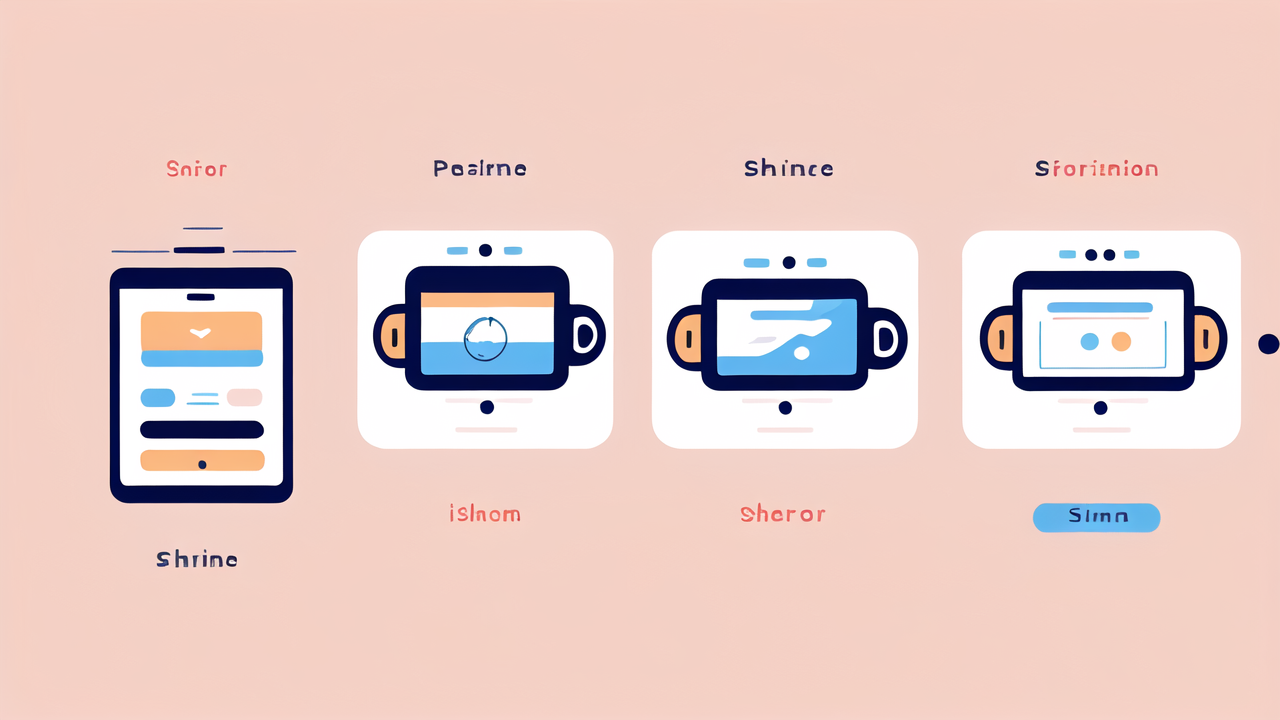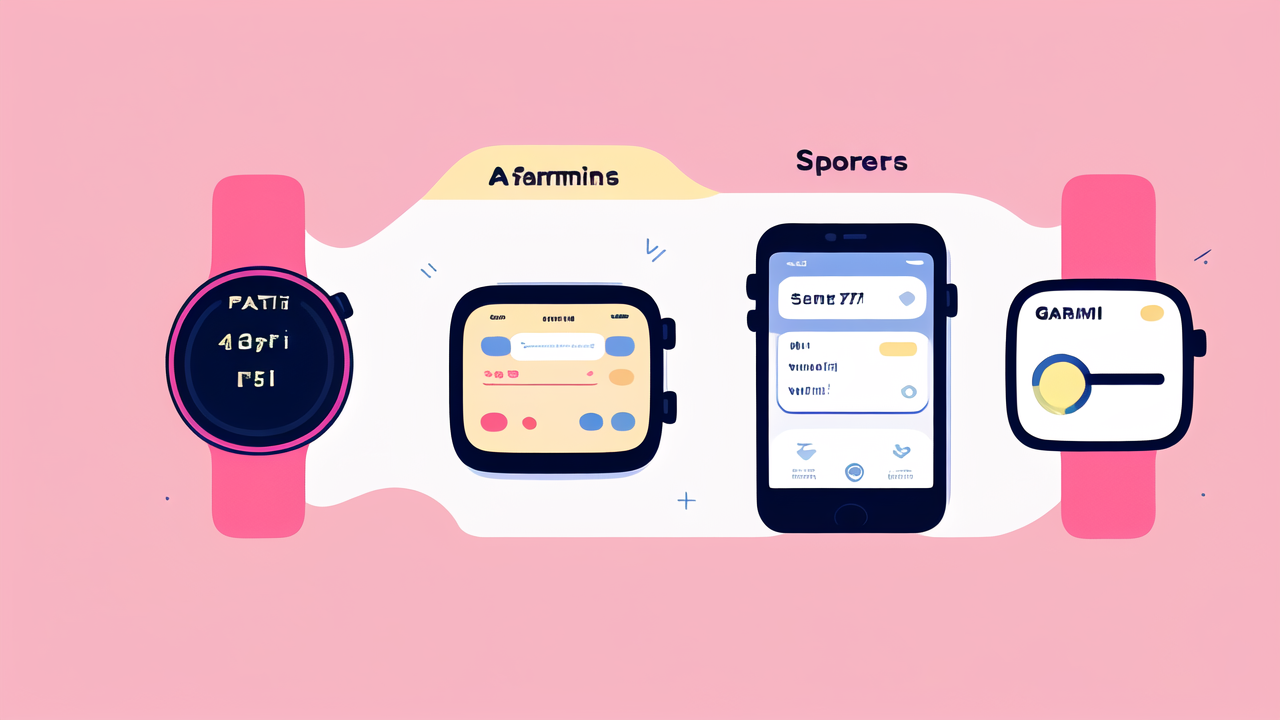The Evolution of Fitness Tracking: From Pedometers to Smartwatches
The inception of fitness tracking devices
Fitness tracking has come a long way since its humble beginnings. It all started with simple pedometers. These devices counted steps and helped people track their daily activity. They were basic but effective.

As technology advanced, so did fitness trackers. Early digital versions added more features. They could track distance, calories burned, and even sleep patterns. This was a big step forward in personal health monitoring.
The real game-changer came with the introduction of smartphones. Apps could now do what standalone devices did before. This paved the way for more advanced wearable technology.
The transformation into smartwatches
Smartwatches took fitness tracking to a whole new level. They combined the features of fitness trackers with the functionality of a smartphone. This meant users could track their health and stay connected at the same time.
These devices offered more than just step counting. They could monitor heart rate, track different types of exercises, and even provide GPS navigation. Some models even allowed users to make calls and send messages.
The design of smartwatches also improved. They became more stylish and comfortable to wear. This made them suitable for both workouts and everyday use.
The impact of AI and Machine Learning
AI and Machine Learning have revolutionized fitness tracking. These technologies have made devices smarter and more personalized. They can now learn from user data and provide tailored insights.
For example, some trackers can now detect different types of exercises automatically. They can also provide more accurate calorie burn estimates based on individual factors. Some even offer personalized workout recommendations.
AI has also improved the accuracy of sleep tracking. Devices can now analyze sleep patterns in detail. They can provide advice on how to improve sleep quality based on this data.
Key Features of Top Fitness Trackers in the Market
Advanced metrics for fitness enthusiasts
Today's top fitness trackers offer a wide range of advanced metrics. These go beyond basic step counting and calorie tracking. They provide in-depth insights for serious fitness enthusiasts.

Some of the advanced metrics include:
- VO2 max estimation
- Recovery time calculation
- Stress level monitoring
- Blood oxygen saturation (SpO2) measurement
- Running dynamics analysis
These features allow users to track their fitness progress in detail. They can help optimize workouts and prevent overtraining.
Integration of smart assistants and voice command
Smart assistants have become a key feature in modern fitness trackers. They allow users to control their devices hands-free. This is especially useful during workouts.
Popular voice assistants like Siri, Google Assistant, and Alexa are now integrated into many models. Users can start workouts, check their stats, or set reminders using voice commands.
Some trackers even allow users to reply to messages or make calls directly from their wrist. This integration of smart features makes fitness tracking more convenient than ever.
Battery life and charging efficiency
Battery life is a crucial factor in fitness trackers. The best devices offer long battery life, often lasting a week or more. This means less frequent charging and more continuous tracking.
Charging efficiency has also improved. Many trackers now use fast charging technology. Some can gain a full day's charge in just 15 minutes. This is perfect for users who forget to charge overnight.
Some high-end models even offer solar charging. This allows the device to top up its battery using natural light. It's an eco-friendly option that extends battery life even further.
Expert Picks: Best Fitness Trackers for Different Users
Trackers for the fitness-obese
For fitness enthusiasts who want detailed data, there are several top options:

- Garmin Fenix 7: This multisport GPS watch offers advanced training features and long battery life.
- Apple Watch Series 8: It provides a wide range of health metrics and seamless integration with iOS devices.
- Polar Vantage V2: Known for its recovery tracking and training load monitoring.
These devices offer comprehensive tracking for serious athletes. They provide detailed metrics and analysis tools.
The perfect balance of cost and features
For those seeking a balance between features and price, consider these options:
- Fitbit Versa 3: Offers a good range of features at a mid-range price point.
- Coros Pace 2: A lightweight GPS watch with impressive battery life.
- Amazfit GTS 3: Provides a lot of features for its price, including Alexa integration.
These trackers offer solid performance without breaking the bank. They're great for users who want more than basic tracking.
Trackers for the casual fitness user
For casual users who want simple tracking, these are good choices:
- Fitbit Inspire 3: A slim, affordable tracker with basic health and fitness features.
- Xiaomi Mi Band 7: Offers good battery life and essential tracking at a budget-friendly price.
- Garmin Vivosmart 5: A sleek band with basic smart features and Garmin's reliable tracking.
These devices focus on core features like step counting and sleep tracking. They're perfect for users who want to monitor their general activity levels.




Leave a comment
This site is protected by hCaptcha and the hCaptcha Privacy Policy and Terms of Service apply.